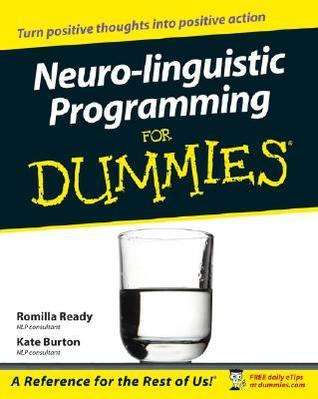
Neuro-Linguistic Programming For Dummies
Check my rate
| Main centres: | 1-3 business days |
| Regional areas: | 3-4 business days |
| Remote areas: | 3-5 business days |

| Main centres: | 1-3 business days |
| Regional areas: | 3-4 business days |
| Remote areas: | 3-5 business days |
Published by John Wiley and Sons, 2004, softcover, index, 330 pages, some slight rippling to a few pages, otherwise condition: very good.
NLP has a simple premise: take someone who's good at something, model how they do it and learn from them. This way it is possible to understand the thought processes common to excellence in any field and weed out negative or habitual thinking. Neuro-Linguistic Programming techniques extremely popular in many areas including business, education, sports, coaching, counselling, personal development and relationships. Neuro-linguistic Programming for Dummies avoids the jargon of many other books and provides both the basic essentials for the beginner and advanced theory for experienced NLP readers.
This book gives a good basic understanding of what NPL is, why its important, and how it can be useful to help you improve your communication skills.
Those are some important highlights that sum up the most important ideas of the book in my opinion:
- NLP, as its commonly referred to, is the study of how we understand and experience the world around us.
- Internal Representation: Our perspective is unique to us because what we experience gets filtered by a number of things. This is why two people experience the same thing one loves the other hates it.
- Nonverbal communication made up 55 percent of an effective, impactful conversation.
- Matching and mirroring: To build rapport find the rhythm of the conversation and be in sync with the person youre talking to.
- Storytelling: People react differently to stories than they do to standard arguments., because a good story taps into memories and emotions.
- Anchor: sensitive information that puts you in some emotional state, it can be a memory, a smell, etc... You can create new, positive anchors that can help you get through difficult situations.
- Deletion represents the fact that were usually leaving certain things out when were explaining ourselves.
- Generalization refers to how were often vague or unspecific in details and tend to extrapolate the outcome of one situation and apply them to another.
- Distortion means misinterpreting events around you. For example, if your boss doesnt greet you in the hallway and you immediately conclude that she hates you